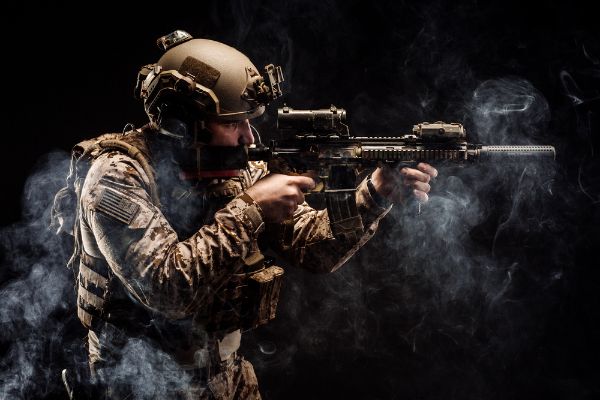
Army Lt. Gen. Steve Gilland, the superintendent of West Point, unveiled the institution’s new mission statement on Monday. It substitutes the more generalized “Army principles” for the terms “duty, honor, nation.”
The prior mission statement of West Point was:
“To educate, train, and inspire the Corps of Cadets in order to produce commissioned leaders of character who are dedicated to the ideals of Duty, Honor, and Country, and who are ready to serve their country as officers in the United States Army and pursue a career of professional achievement.”
The updated declaration reads as follows:
“To develop, instruct, prepare, and motivate the Corps of Cadets to become commissioned leaders with integrity who uphold the Army Values and are prepared to serve the Army and the country for the rest of their lives.”
In contrast to “duty, honor, nation,” Gilland stated that he preferred to concentrate more on the “mission vital duties” of “construct, teach, train, and inspire.”
Famous Army General Douglas MacArthur used the phrase “duty, honor, nation” in his 1922 speech to the Corps of Cadets. Following his return from World War I duty, MacArthur was West Point’s superintendent from 1919 until 1922.
A section of the speech was required for incoming cadets to remember during basic training at West Point, according to Randy DeSoto of the Western Journal. It stated:
“Those three sacred words, duty, honor, and country, prescribe with reverence what you should be, what you may be, and what you will be. These serve as your focal points: creating hope when hope seems hopeless, regaining faith when there doesn’t appear to be much reason to be hopeful, and strengthening courage when courage seems to be failing.”
Throughout his address, MacArthur said the following multiple times:
“Country, Honor, and Duty.” Beyond all ethics and ideologies ever established for the betterment of humanity, the code that those words uphold is based on the greatest moral standards. Its constraints come from doing bad things, and its obligations come from the things that are good. The ultimate act of religious instruction for a soldier is sacrifice, more than for any other man.”
He displays the heavenly qualities that his Creator bestowed upon him when he created man in his likeness during combat and in the face of peril and death. Nothing can replace divine assistance, which is the only thing that can keep him alive, save physical bravery and primal instinct.
These content links are provided by Content.ad. Both Content.ad and the web site upon which the links are displayed may receive compensation when readers click on these links. Some of the content you are redirected to may be sponsored content. View our privacy policy here.
To learn how you can use Content.ad to drive visitors to your content or add this service to your site, please contact us at [email protected].
Family-Friendly Content
Website owners select the type of content that appears in our units. However, if you would like to ensure that Content.ad always displays family-friendly content on this device, regardless of what site you are on, check the option below. Learn More





